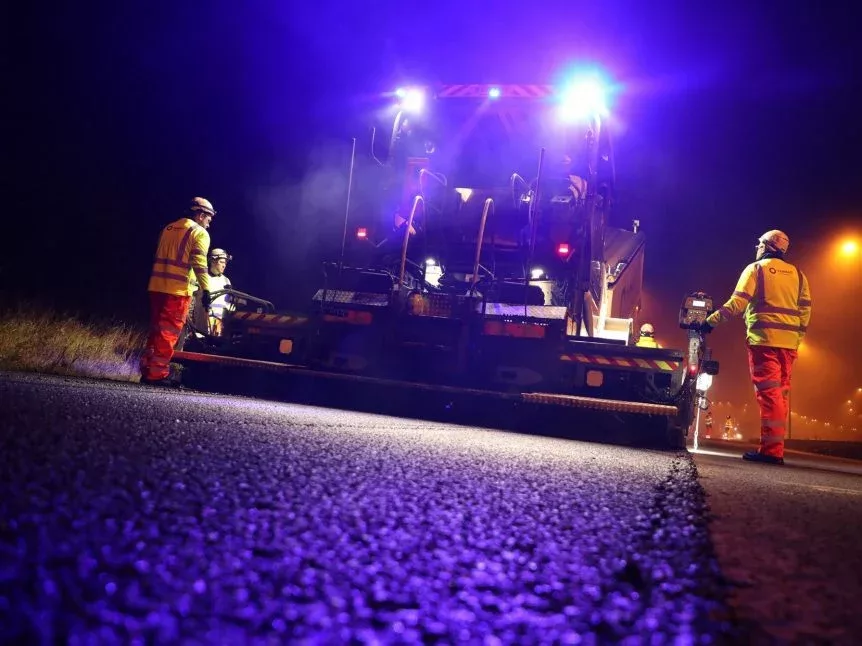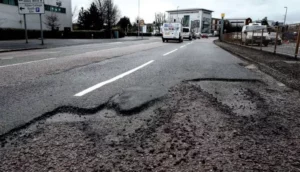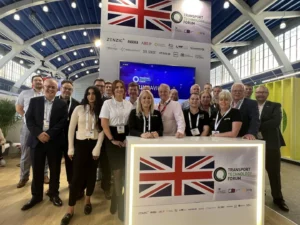The Local Council Roads Innovation Group’s (LCRIG) first ever #AsktheDft event attracted more than 100 attendees with members able to put their questions directly to senior personnel.
The Department for Transport (DfT) representatives who took part in the exclusive session were Matthew Eglinton, Head of Local Roads Maintenance and Resilience, Local Infrastructure; and Darren Capes, ITS Policy Lead, Traffic and Technology Division.
The event was focused on the DfT’s local highways maintenance incentive fund, particularly around sustainability and decarbonisation. The event also provided an opportunity to honour the late Steve Berry OBE – the DfT’s head of highways maintenance, innovation and resilience – who sadly passed away earlier this month.
During the discussion, Mr Eglinton was asked about the need for a long-term settlement on highways funding to allow councils to plan an effective and long-term strategy for both pothole and road maintenance.
In answering, he said: “There does need to be a long-term settlement for highways maintenance funding; that is exactly what Steve and I were working on, and what I will be continuing to work towards. I will carry on asking local highway colleagues across the sector for their continued help and support in building the evidence base, to ensure that we set out as compelling an argument as possible for it.”Mr Capes answered questions around technology and innovation and provided an update on the recently announced traffic signals maintenance fund, which forms part of the highway maintenance fund.
From 12 April councils have been able to use the Local Council Roads Innovation Group (LCRIG) website to apply for a share of the £15 million of extra money which has been allocated to supplement existing local authority spending on the upgrade and maintenance of traffic signals and associated equipment.
To date, more than 100 local authorities have accessed the portal and over 30 have started to make their submission. Councils have until next Thursday (7 May) to complete their application.
Mr Capes told the audience that the application process is designed to be simple and straightforward and that it involves authorities providing evidence of the policies they have in place for using their traffic signals, existing maintenance programmes and their aspirations for the future.
He said: “Anyone that has been in traffic signals for any length of time will know that funding has always been hard to come by. We know that probably half the traffic signals in England are working below par. We also know that there is a big backlog of signals maintenance out there. This isn’t just about maintenance, it’s about highway efficiency and meeting wider policy aims. This funding is about starting to deal with that. I’d like to highlight to anyone who has responsibility for traffic signals to consider making an application through the LCRIG website.
“We’re asking for councils to evidence the policies they already have in place. Provide us with the evidence and show us that you’re ready to spend – that you have a policy framework to fit this in. We should really be able to target traffic signal maintenance in England and start to make a difference.”
Those applying can provide any supporting information, policies, standards or other published information which they feel will be of use in this assessment.
The assessment of submissions will start after the closing date and successful authorities who have been awarded grant funding will be informed by the end of May.
Funding will be awarded in blocks of between £300,000 and £500,000 will be paid out to between 30 and 50 local authorities to support programmes of work over the coming 24 months.
Information is being collected by LCRIG on behalf of the Department for Transport. It will only be accessible to DfT and will be used in assessing allocation of the 2021/22 Traffic Signals Maintenance Grant settlement.
However, when submissions have been completed applicants will be presented with an LCRIG questionnaire. The information collected as part of this will enable LCRIG to provide the DfT and each council that contributes with an overview of the national status of signals.
Any councils who are interested in submitting an application should contact LCRIG Secretariat Susanne Ingham at [email protected]





















